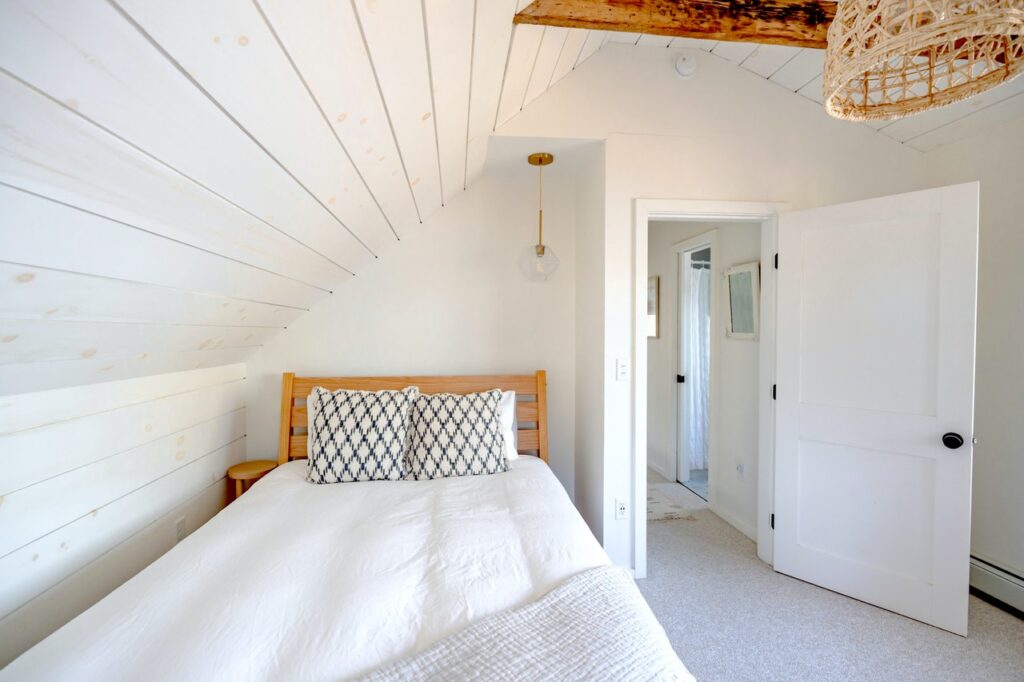
Are you looking to open up an Airbnb?
The world has opened up, and tourism is resuming, so there’s never been a better time. People will always need a place to stay, so why not cash in on that fact?
You need to have a plan and make sure your property fits into a desirable niche. This means fair and competitive pricing but also offering something people want. You also have to deal with all the rules, regulations, and legal issues for your area.
Not sure where to start? Read on for a complete guide on how to start an Airbnb business.

1. Have a Plan
Starting an Airbnb business isn’t as carefree and simple as most people think. It’s crucial to have a plan before testing the waters of this lucrative hustle. Knowing the ins and outs of the industry is the best way to ensure you’re maximizing potential income.
The easiest way to get started is if you already have a suitable property for a listing. If this isn’t the case, then you may have quite the challenge on your hands. Not all buildings fit Airbnb’s requirements, and some don’t allow short-term renting.
You need to own or find a building that you can use as an Airbnb. You should be familiar with pricing in your area and what the rough standards are.
Once you’ve done that, you need to consider amenities and crucial features. These include security and how you plan to let your guests access the accommodation. Some Airbnb hosts meet the guests in person to give them a key and go over expectations.
Others install a keypad and text over the code for a smooth contactless experience. You need to think about all of this ahead of time and have a game plan before signing up with Airbnb.
If finding a property fit to start an Airbnb business is a hassle, a quick look will find experts who can help. Find out more helpful tips on this by talking to the experts. Once you’re over this hurdle and are fully committed, it’s time to know your market.
2. Creating a Niche
Your property needs to stand out to make money as an Airbnb host. There are multiple ways to achieve this.
You’re more likely to attract guests if you’re located somewhere desirable. The heart of a major city is a good example, or close to popular attractions.
An important factor to remember is to try to sell your location by making it sound as good as possible. If it’s a little out of the way, advertise it as peaceful or surrounded by nature.
Don’t hang your whole pitch on something like basic amenities or fresh towels. Mentioning what you have in the details is important but usually won’t be a selling point. People who stay in an Airbnb often want authentic experiences for a few days for fair prices.
3. Permits, Legalities, Licenses, and Taxes
A successful Airbnb business is one that’s dotted all its I’s and crossed all its Ts. When you sign up for Airbnb as a host, you’ll notice lots of rules and regulations. Some of these come directly from Airbnb, but many are reminders to check your local situation.
For starters, Airbnb has its hosts accept certain commitments on sanitation and safety. False advertising is an obvious no-no, so keeping your Airbnb info up to date is important. The big issue is making sure you’re following the law in your jurisdiction.
Remember that Airbnb is only a service that connects potential guests with hosts. You have to be legally allowed to run or operate your Airbnb. You need to follow certain guidelines and standards for Airbnb, or you’ll get banned.
Both you and Airbnb have a legal obligation to make sure everything is above board. For example, your locality must allow you to use your building as an Airbnb for hosting purposes. In some cases, this means you’ll need a local business license.
There’s also the issue of insurance, safety inspections, and taxation to consider as well. It can feel like a mountain of paperwork. The good thing is that Airbnb has several resources compiled to help you navigate the major hurdles.
They might not have all the answers, but they’ll tell you what to look into for your general area. It’s crucial to do your own research on top of this.
4. Curate Your Listing
When looking into how to start an Airbnb business, you need to personalize your listing. As mentioned above, listing all the amenities won’t cut it.
That said, you don’t want to forget them either. If creating a niche is about creating a great space and advertising plan, now it’s time to curate your listing. It all starts with a high-quality photographer.
Don’t rely on stock photos of the major touristy sights. Another thing is to not waste pictures on features people don’t care about. There are three major things to focus on when creating your listing.
These are what the home generally looks like from the outside, what it looks like from the inside, and the major attractions nearby. No one needs a close-up photo of the dresser or of a single tree in the backyard. Get as much in the frame as possible, and keep the photos fresh and high quality.
Don’t upload blurry or crooked photos, and don’t only move over a few feet to take another photo of the same area. Ask a professional photographer for help to nail the major details. Ask them for help with the surrounding sights as well.
This will create a unique and curated-looking listing. The only other thing is to make sure you have enough photos without going overboard. Two good rules of thumb: never have way more photos of the touristy spots than of the Airbnb, and try to have at least 6.
How to Start an Airbnb Business
Wanting to start an Airbnb business isn’t as easy as buying a property or opening your home. You need to follow certain rules, which include legal regulations. You also need a comprehensive plan to ensure success.
As a host, you should offer a great experience and create a listing that convinces guests of that fact. For more info and articles like these, check out our other blog posts.


